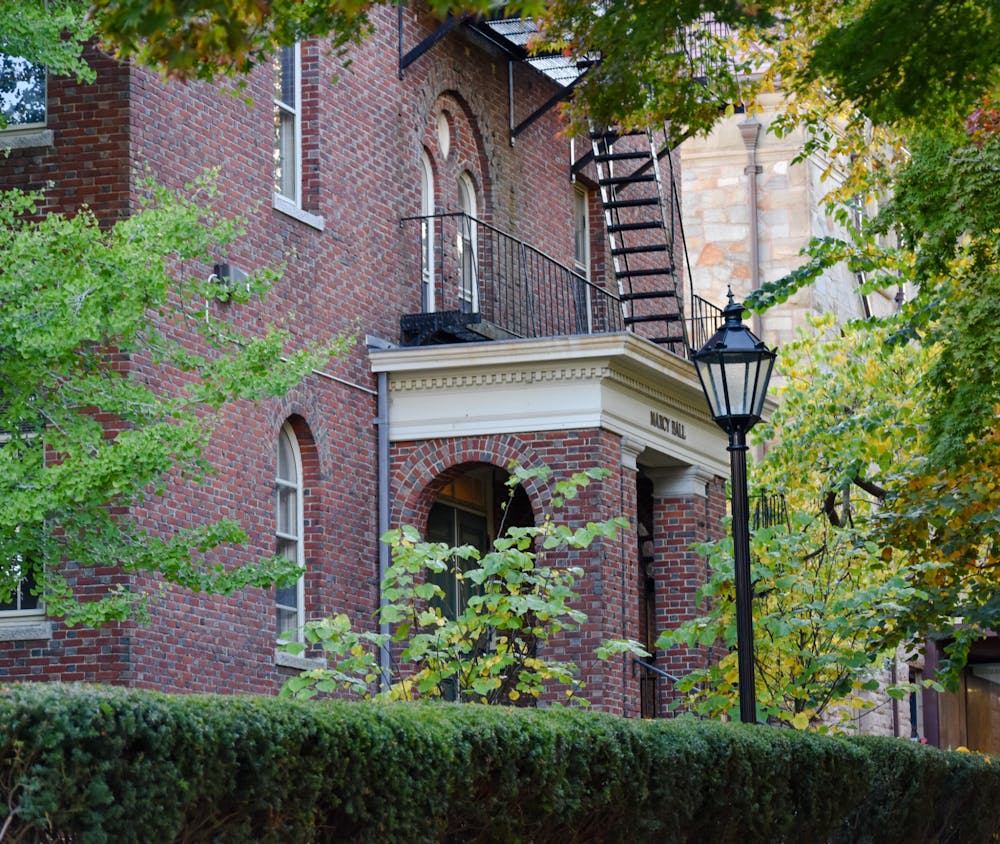In 1972, the University’s Urban Studies Program was born out of faculty volunteerism and a steadfast commitment to the principles of interdisciplinary exploration unique to Brown. Fifty years later, the program is celebrating half a century of community engagement, scholarship and development.
Professor of Economics Benjamin Chinitz and Professor of Sociology Basil Zimmer were inspired to launch the program by the “heightened interest in urban affairs as a result of the intense urban violence of 1964 to 1968,” said Howard Chudacoff, professor of American history and one of the initial professors who contributed to the program. During that period, more than 100 major riots ensued in cities as a result of racial and economic tensions.
“It is important to note that all of us who were involved were volunteers,” Chudacoff said. “All that we did evolved from participation which occurred over and above our responsibilities to our respective departments.”
“Our contributions to courses and administration derived from our genuine interest,” he added. “We did not seek any compensation for our efforts.”
The Urban Studies Program is no longer dependent on faculty volunteers, with 12 faculty members running the program directly and 13 associated faculty from other departments teaching courses in urban studies-related fields, according to Samuel Zipp, professor of American Studies and director of urban studies.
Before the establishment of urban studies as a distinct program within the University, the only means of pursuing this field of study was through the University’s independent concentration option, Zipp said. While urban studies emerged as an academic program in 1972, it wasn’t a designated concentration until 1973.
“In 1972, there was a big course called ‘Urban American Problems and Perspectives,’ ” Zipp said. “Then, 10 students graduated with an independent concentration in urban studies in 1972 and 20 (students) in 1973, so it was that year when the College eventually created a standard concentration.”
Although the Urban Studies Program has its own official concentration, it still borrows from other disciplines.
Zipp shared that the Urban Studies Program works closely with “programs that tend to be very practically oriented on policy, planning and design” and is influenced by the University’s architecture, English, history, art history and American studies departments.
“Urban studies continues to be a really vibrant concentration — the quintessential Brown concentration — that draws from the humanities and social sciences, attracting students who are interested in a wide range of different kinds of study and career options,” Zipp said. The program seeks to ensure that students receive a deep, conceptual understanding of urbanization that they can bring to a range of practical career work.
The academic breadth of the Urban Studies Program is strategically designed for student success in a variety of career fields, Zipp said, noting that the program produces well-rounded concentrators who become familiar with multiple academic disciplines.
“Many of our students are interested in working across the spectrum — in the public sector to the private,” Zipp said, citing that graduates often work with government, community, design and law groups. “It’s a very broad range of skills that students learn.”
Toby Arment ’23, urban studies departmental undergraduate group leader, said that the Urban Studies Program has provided him a wide range of skills that will aid him in his postgraduate pursuits.
“I’ve been given a lot of practical tools,” Arment said. “I think (that) the people within this department have equipped me with networks of practicing professionals … that will prepare me to hopefully make a profound impact in the real world.”
This desire to make an impact is consistent with the mission of the program, as explained by Zipp.
“Such a huge part of how we think about what the concentration does” comes from community engagement, Zipp said. Many urban studies concentrators engage with the Providence community through the Swearer Center for Public Services, internships within city government and everyday urban studies assignments that arise in class.
“Whether it’s housing or working through transportation problems, various public questions involving the planning and economic life of Providence pop up,” Zipp said. “Our program is always finding ways to get students to interact on our front.”
Consistent with efforts for greater community involvement, the urban studies program is hosting a lecture series to celebrate its 50th anniversary, bringing in external speakers to talk about their experience as scholars, planners, organizers and more within the field of urban studies.
“We’re bringing world-renowned urbanists to Brown to talk about urbanization at the biggest, most conceptual level,” Zipp said. “We’re hosting (professionals) from around the country with various specific areas of expertise, … and what’s exciting about these events is that they’re not just talks, they’re conversations between these renowned urbanists and our faculty.”
Arment said he is excited to engage with the urban studies lecture series and to hopefully interact with younger undergraduate students to expose them to the wonders of the Urban Studies Program as his time as a DUG leader comes to a close.
“We have huge events going on to celebrate our anniversary, which is very exciting,” he said. “I’m excited to put on events, both this semester and next semester, … to bring more people into this field and to better understand our urban future.”

Sofia Barnett is a University News editor overseeing the faculty and higher education beat. She is a junior from Texas studying history and English nonfiction and enjoys freelancing in her free time.





